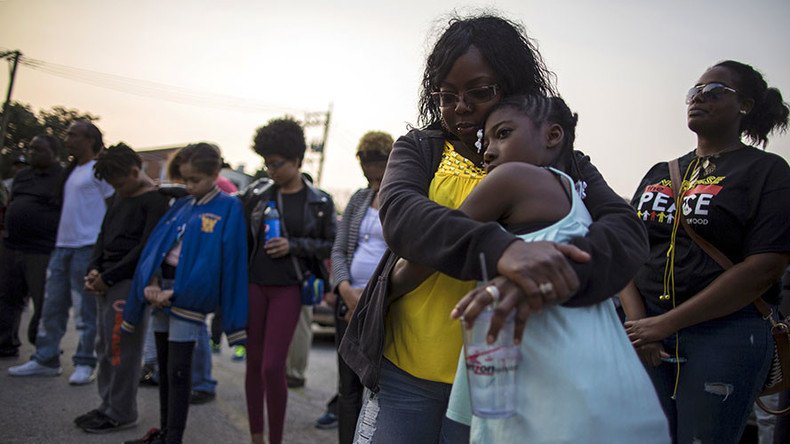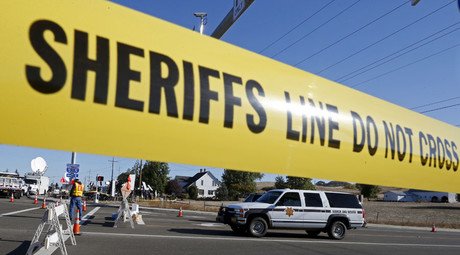Blacks more likely to be victims or aggressors in ‘mass shootings’

Fear of escalating racial tensions may be why much of gun violence goes unaddressed in US society. A new analysis shows that African Americans constituted the majority of both casualties and perpetrators in 358 multiple shootings last year.
The Mass Shooting Tracker, a list of incidents where at least four people were injured by a gun in 2015, grabbed headlines late last year for showing an average of at least one “mass shooting” per day in the US. The data, gathered from web searches of news stories and collected on Reddit, an online news and social networking forum, along with information from the Gun Violence Archive, is part of a new analysis published in Sunday’s edition of The New York Times.
The New York Times found that of the 358 such shootings last year, among the 67 percent of cases where the races of those involved was reported, three-fourths of the victims and three-fourths of the alleged shooters were black.
Traditionally, when the mass media reports on gun violence, it is following a massacre like the Charleston church shooting last year, where nine were killed. While the high-profile tragedy occurred in a black church with all victims being African-Americans, often the face for such events is the shooter’s, usually white, and the dead, if covered as more than a statistic, are commonly seen as white as well, such as in most school shootings.
But expanding the term “mass shooting,” to mean at least four or more merely injured, could reveal more context in reporting on the issue of gun violence in the US. Critics of the methodology of The Mass Shooting Tracker have said it misleads people into thinking a Columbine- or San Bernardino-type slaughter happens every day.
23 people in US shot by toddlers in 2016 so farhttps://t.co/29N1wdAL0zpic.twitter.com/vWx3zom98F
— RT America (@RT_America) May 2, 2016
Analysis by The New York Times found that about one-third of the 358 mass shootings last year were drive-bys or otherwise gang-related, according to law enforcement, while a roughly equal amount took place as part of arguments that spiraled out of control, usually with the involvement of drugs or alcohol.
Almost 90 percent of the zip codes where the mass shootings took place had poverty rates higher than the national average. Approximately half the incidents have not been solved, but in Chicago and Baltimore, the arrest rates were far lower. Out of 16 mass shootings in Chicago, two arrests were made, while none of the 11 such shootings in Baltimore have been solved.
The gun murder rate has fallen by about half since the 1990s, but blacks continue to be much more vulnerable compared with other races overall. Compared to whites, blacks are “six to 10 times more likely to die from gun violence,” the Times reported.
There was one category in which whites outnumbered blacks in the victim stats. Domestic violence, which made up 11 percent of the shootings, saw a majority of white victims, and 31 percent of victims of domestic violence mass shootings died.
The 2015 mass shooting list included 358 events where at least four or more were injured or killed. The totals were 462 killed and 1,330 injured.













